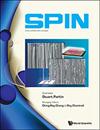Oblivious algorithms for the Max-kAND Problem
IF 1.3
4区 物理与天体物理
Q4 PHYSICS, APPLIED
引用次数: 1
Abstract
Motivated by recent works on streaming algorithms for constraint satisfaction problems (CSPs), we define and analyze oblivious algorithms for the Max-$k$AND problem. This generalizes the definition by Feige and Jozeph (Algorithmica '15) of oblivious algorithms for Max-DICUT, a special case of Max-$2$AND. Oblivious algorithms round each variable with probability depending only on a quantity called the variable's bias. For each oblivious algorithm, we design a so-called"factor-revealing linear program"(LP) which captures its worst-case instance, generalizing one of Feige and Jozeph for Max-DICUT. Then, departing from their work, we perform a fully explicit analysis of these (infinitely many!) LPs. In particular, we show that for all $k$, oblivious algorithms for Max-$k$AND provably outperform a special subclass of algorithms we call"superoblivious"algorithms. Our result has implications for streaming algorithms: Generalizing the result for Max-DICUT of Saxena, Singer, Sudan, and Velusamy (SODA'23), we prove that certain separation results hold between streaming models for infinitely many CSPs: for every $k$, $O(\log n)$-space sketching algorithms for Max-$k$AND known to be optimal in $o(\sqrt n)$-space can be beaten in (a) $O(\log n)$-space under a random-ordering assumption, and (b) $O(n^{1-1/k} D^{1/k})$ space under a maximum-degree-$D$ assumption. Even in the previously-known case of Max-DICUT, our analytic proof gives a fuller, computer-free picture of these separation results.Max-kAND问题的遗忘算法
受约束满足问题(csp)流算法研究的启发,我们定义并分析了Max- $k$ and问题的无关算法。这推广了Feige和joseph (Algorithmica '15)对Max- dicut (Max- $2$ and的一个特例)的无关算法的定义。遗忘算法对每个变量进行概率四舍五入,这只取决于一个称为变量偏差的量。对于每个遗忘算法,我们设计了一个所谓的“因子揭示线性程序”(LP),它捕获其最坏情况,将Feige和joseph的一个推广到Max-DICUT。然后,离开他们的工作,我们执行一个完全明确的分析这些(无限多!)lp。特别地,我们证明了对于所有$k$, Max- $k$ AND的遗忘算法可以证明优于我们称之为“超级遗忘”算法的一个特殊子类。我们的结果对流算法具有启示意义:推广Saxena, Singer, Sudan和Velusamy (SODA'23)的Max-DICUT结果,我们证明了无限多个csp的流模型之间存在一定的分离结果:对于每个$k$,已知在$o(\sqrt n)$ -space中最优的Max- $k$ - AND的$O(\log n)$ -space素描算法可以在(a)随机排序假设下的$O(\log n)$ -space和(b)最大度- $D$假设下的$O(n^{1-1/k} D^{1/k})$ -space中进行。即使在先前已知的Max-DICUT情况下,我们的分析证明也提供了这些分离结果的更完整的,不需要计算机的图像。
本文章由计算机程序翻译,如有差异,请以英文原文为准。
求助全文
约1分钟内获得全文
求助全文
来源期刊

Spin
Materials Science-Electronic, Optical and Magnetic Materials
CiteScore
2.10
自引率
11.10%
发文量
34
期刊介绍:
Spin electronics encompasses a multidisciplinary research effort involving magnetism, semiconductor electronics, materials science, chemistry and biology. SPIN aims to provide a forum for the presentation of research and review articles of interest to all researchers in the field.
The scope of the journal includes (but is not necessarily limited to) the following topics:
*Materials:
-Metals
-Heusler compounds
-Complex oxides: antiferromagnetic, ferromagnetic
-Dilute magnetic semiconductors
-Dilute magnetic oxides
-High performance and emerging magnetic materials
*Semiconductor electronics
*Nanodevices:
-Fabrication
-Characterization
*Spin injection
*Spin transport
*Spin transfer torque
*Spin torque oscillators
*Electrical control of magnetic properties
*Organic spintronics
*Optical phenomena and optoelectronic spin manipulation
*Applications and devices:
-Novel memories and logic devices
-Lab-on-a-chip
-Others
*Fundamental and interdisciplinary studies:
-Spin in low dimensional system
-Spin in medical sciences
-Spin in other fields
-Computational materials discovery
 求助内容:
求助内容: 应助结果提醒方式:
应助结果提醒方式:


